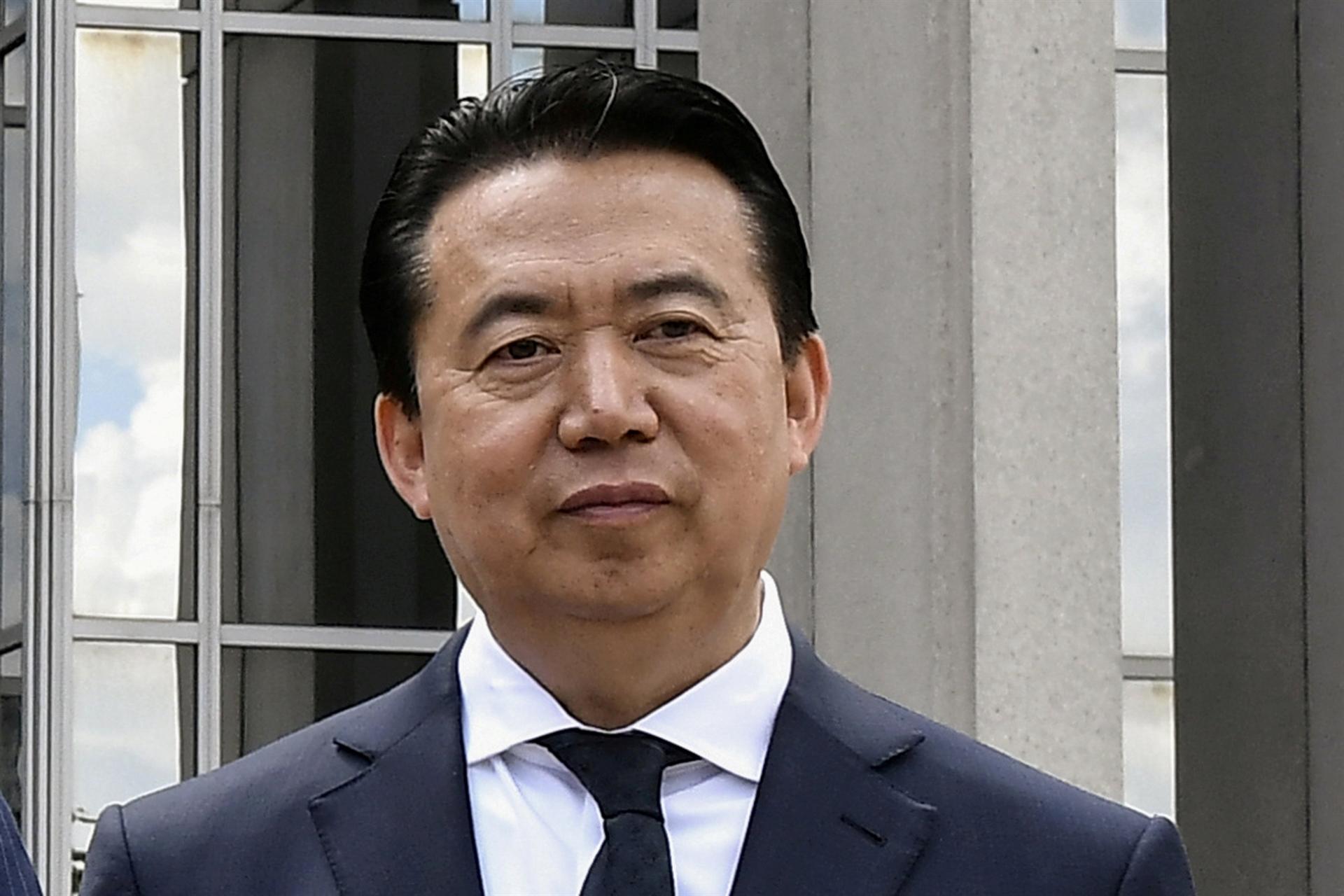
The Chinese head of Interpol resigned as Beijing announced Oct. 8 he was under investigation for allegedly breaking domestic law, while his wife voiced concern for his life following his disappearance.
China had been tight-lipped about the fate of Meng Hongwei, who is also vice minister for public security, since French officials disclosed on Friday that he had been reported missing after leaving France for China last month.
His case could tarnish Beijing’s efforts to gain leadership posts in international organisations, but it is also a black eye for France-based Interpol, which is tasked with finding missing people, analysts say.
His wife, Grace, told reporters in Lyon, where Interpol is headquartered, that she was concerned after receiving a text message from her husband with a knife emoji.
China’s National Supervisory Commission, which handles corruption cases involving public servants, broke the official silence early Monday, saying in a one-line statement that Meng "is currently under investigation on suspicion of violating the law".
Soon after, Interpol said it had received Meng’s resignation "with immediate effect".
It is the latest high-profile disappearance in China, where a number of top government officials, billionaire business magnates and even an A-list celebrity have vanished for weeks or months at a time.
When -- or if -- they reappear, it is often in court.
Meng, the first Chinese president of Interpol, was last heard from on September 25 as he left Lyon.
Interpol’s secretary general Juergen Stock, who oversees day-to-day operations, said Saturday the agency was seeking "clarification" on his whereabouts.
Meng was appointed in 2016, despite concerns from human rights groups, giving Chinese President Xi Jinping a win in his bid to paint the communist-led country as a responsible player in global affairs.
But his disappearance could be a setback for China.
"Any international organisation should think twice going forward before considering a Chinese candidate to be its head," Bonnie Glaser, senior Asia adviser at Washington’s Center for Strategic and International Studies, told AFP.
Meng had lived with his wife and two children in France since 2016.
Speaking to reporters on Sunday, Meng’s wife Grace said she had received a message from his phone containing a knife emoji before his disappearance.
That day, she said he sent a message telling her to "wait for my call", before sending the emoji signifying danger.
"This matter belongs to the international community," she told a press conference with her back turned to the cameras out of fear for her safety.
"I’m not sure what has happened to him," she said.
China’s recently established National Supervisory Commission holds sweeping powers to investigate public servants, with few requirements for transparency.
Although the commission did not detail the allegations against Meng, its mandate is to probe corruption cases as part of Xi’s anti-graft campaign.
Some critics of the effort -- which has punished more than one million officials -- say it also functions as a tool for Xi to eliminate his political rivals.
Meng rose through the ranks of the country’s domestic security apparatus when it was under the leadership of Zhou Yongkang, a rival to Xi and the highest-ranking official to be brought down on corruption charges.
Zhou -- who was jailed for life in 2014 -- was subsequently accused of conspiring to seize state power.
He appointed Meng vice security minister in 2004.
In that role, Meng has been entrusted with a number of sensitive portfolios, including the country’s counter-terrorism division, and was in charge of the response to several major incidents in China’s fractious western region of Xinjiang.
Critics of Meng’s rise to Interpol’s presidency said he would use the position to help China target dissidents abroad.
Interpol has downplayed the concerns, saying the president has little influence over the organisation’s day-to-day operations.
The Chinese effort to track down corrupt officials abroad, known as Operation Fox Hunt, has led to claims in some countries that Chinese law-enforcement agents have been operating covertly on their soil without authorisation.
China currently has 44 outstanding red notices, mostly related to murder, intentional injury and drug smuggling, according to Interpol’s website.
During Meng’s tenure, Interpol issued a red notice for fugitive Chinese billionaire Guo Wengui, who threatened to reveal corruption at the country’s highest levels and is himself accused by Chinese authorities of money laundering.